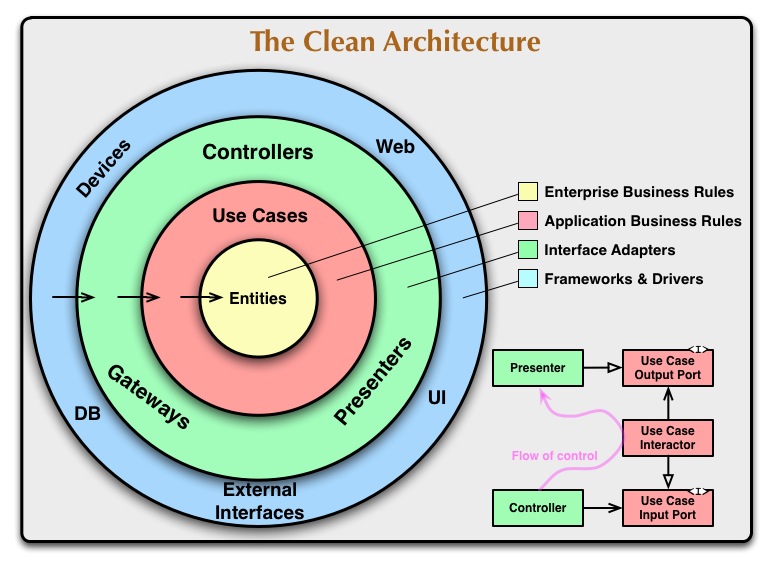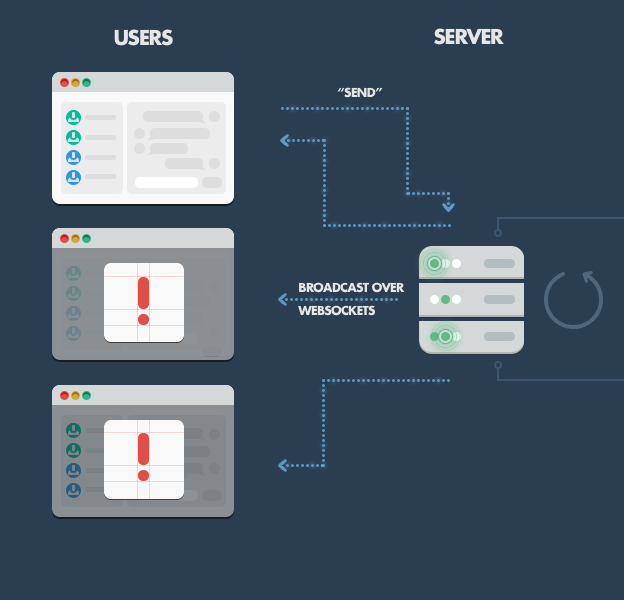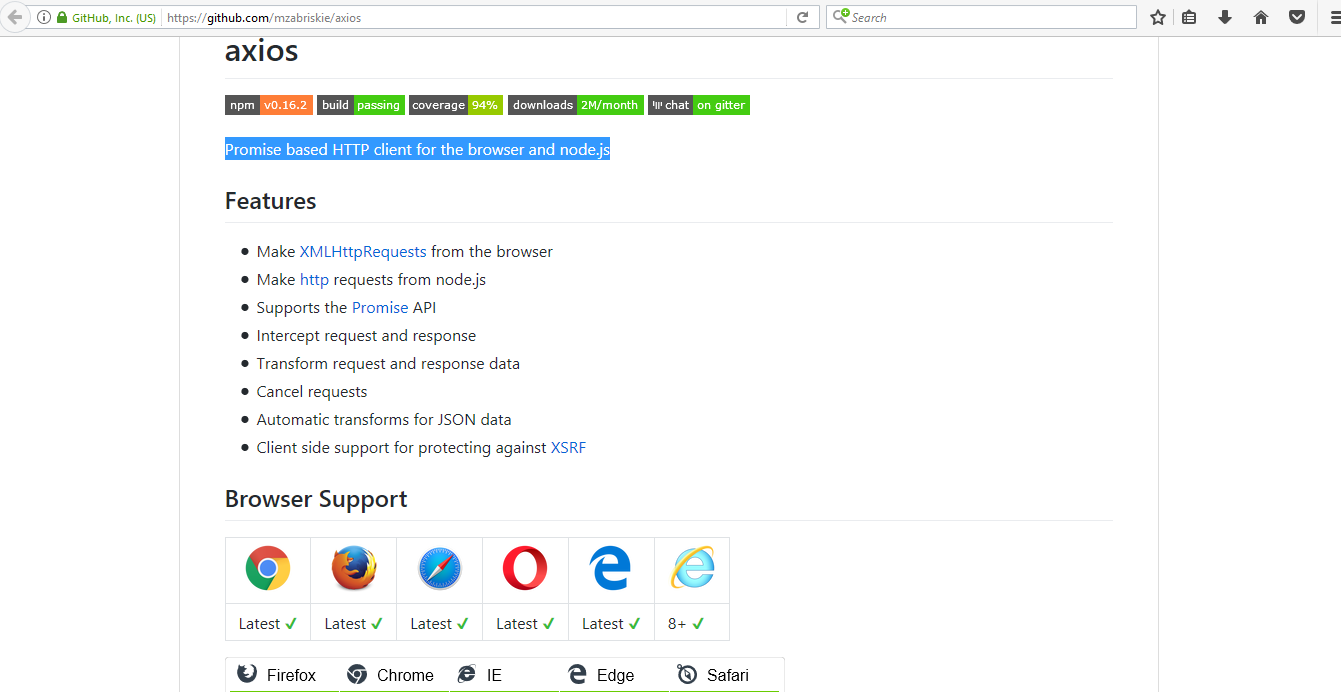- Definition and Usage. The serialize function converts a storable representation of a value. To serialize data means to convert a value to a sequence of bits, so that it can be stored in a file, a memory buffer, or transmitted across a network.
- Example that uses the returnResult option to directly return the serialized XML document in the serialize method. In this example look at theses 3 lines.
- January 30, 2018 Nodejs Leave a comment. Questions: I am trying to connect to an Oracle database from Node.js in Windows 7. Is this possible? I have not found a plugin for Node.js which will do this for Windows. Are there any recommended wor.
- Node Js Read Json
- Js Form Serialize
- Cool Node Js Examples
- Parse Html Nodejs
- Node Js Php Serialize Example Pdf
PHP Object to JSON Example Let’s understand how we can JSON-encode a PHP object by creating an instance of a Book class based on the Library example we saw above (Sec 1.1). We’ll create two instance variables for the book’s instance and encode the object using jsonencode.


Do I implement Serialize and Deserialize?
Node Js Read Json
RedisStore is setup as my session store with Express. Does this mean that I DO NOT implement Serialize and Deserialize? Will it happen automatically?
When I don’t implement these methods I get the following Express error – 500 Error: failed to serialize user into session. When I do implement them I’m not sure what to put in the Deserialize.

The code below appears to work but the sessions are not persisting. I need to login everytime I visit the site.
Is there a good example anywhere of NodeJS + Passport + RedisStore?
If you are using sessions you have to provide passport with a serialize and deserialize function. Implementing Redis as a session store has nothing to do with how passport was implement, it only deals with where the session data is stored.
Implementing Sessions with passport
As I said, the serialize and deserialize functions must be provided to passport for sessions to work.
The purpose of the serialize function is to return sufficient identifying information to recover the user account on any subsequent requests. Specifically the the second parameter of the done() method is the information serialized into the session data.
The deserialize function that you provide is intended to return the user profile based on the identifying information that was serialized to the session.
Here is the example from the Passport Guide in the section discussing sessions:
In the above example passport.serializeUser() is provided a function that takes two parameters, the user profile (user) and a callback function (done). The callback function takes as it’s second parameter the identifying information (user.id, but if you’re using mongoDB this may be user._id) required to recover the account from the database. This will be called on every authenticated request and stores the identifying information in the session data (whether that is in a cookie or your Redis store).
passport.deserializeUser() is provided a function that also takes two parameters, the identifying information (id) and again a callback function (done). The identifying information is what was serialized to the session data in the previous request (user.id). The callback function here requires the user profile as it’s second parameter, or any error in raised in retrieving the profile as it’s first parameter. The User.findById() function is a lookup function for the user profile in the database. In this example User object is an instance of a mongoose model which has the findById() function.

The function provided to passport.deserializeUser() is called by the passport middleware, passport.session() prior to the route handling to store the user profile (user) to req.user.
Implementing Redis as a Session Store
The purpose of using Redis is to store session data server side so the only data stored client side is the session id. Again, this is independant of how you have implemented passport, passport doesn’t care where the session data is being stored as long as you have added session support to your app. This previos question on stackoverflow addresses how to implement Redis
Bit late but i have made this visual thing to understand
- When and how is is an strategy/local/Facebook/etc called and how it gets to req.login or passport.serializeUser() and whats with done()?
passport.authenticate() invokes the respective strategy you provide as an argument, there you match req.body.password and req.body.username with the database stored or in memory stored password and username. if user found you pass it to done() as second argument else you return false
The done callback return back to passport.authenticate(). if done is called previously with user (ie done(null,user); ) than req,logIn() is called automatically or by user behind the scene
req.logIn() calls passport.serializeUser()
- Whats passport.serializeUser and Where does user.some_key go after this function has been called?
the key of user object you provide in second argument of the done in serialize function is saved in session and is used to retrieve the whole object via deserialize function.

Serialize function determine what data from the user object should be stored in the session. The result of the serializeUser method is attached to the session as req.session.passport.user = {} here for instance it would be(as we provide id as key) req.session.passport.user = {id:'xyz'}
- What is passport.deserializeUser and where does it fit in the workflow?
In deserialize function you provide in first argument of deserialize function that same key of user object that was given to done function in serialize call. so your whole object is retrieved with help of that key. that key here is id(key can be any key of the user object ie name,email etc)
In deSerialize function that key is matched with in memory array / database or any data resource
The fetched object is attached to request object as req.user
Js Form Serialize
id key can be any key of the user object ie name,email etc
Visual Flow
here id key can be any key of the user object ie name,email etc
Cool Node Js Examples
Parse Html Nodejs
Given the following configuration of express-session with connect-redis as the session store (using Express 4):
Node Js Php Serialize Example Pdf
You can just tell passport to serialize the entire user object, instead of just the user id.
The entire user object will be saved with the session in Redis, and placed on the request as req.user for every request.